Guide To Camping With A Baby Or Toddler
The arrival of a new baby need not signal the end of family camping trips. So, read on for a guide on baby and toddler camping tips.
Camping with a baby may have a few tiring or stressful moments, so instead of trying to pack in loads of activities, why not take it slow and use the time to relax.
All the fresh air will tire your baby out, and you may even find that they sleep better than usual despite being in a different environment. Babies love being in the same room as you and having their parents around all the time, so camping is heaven for them!
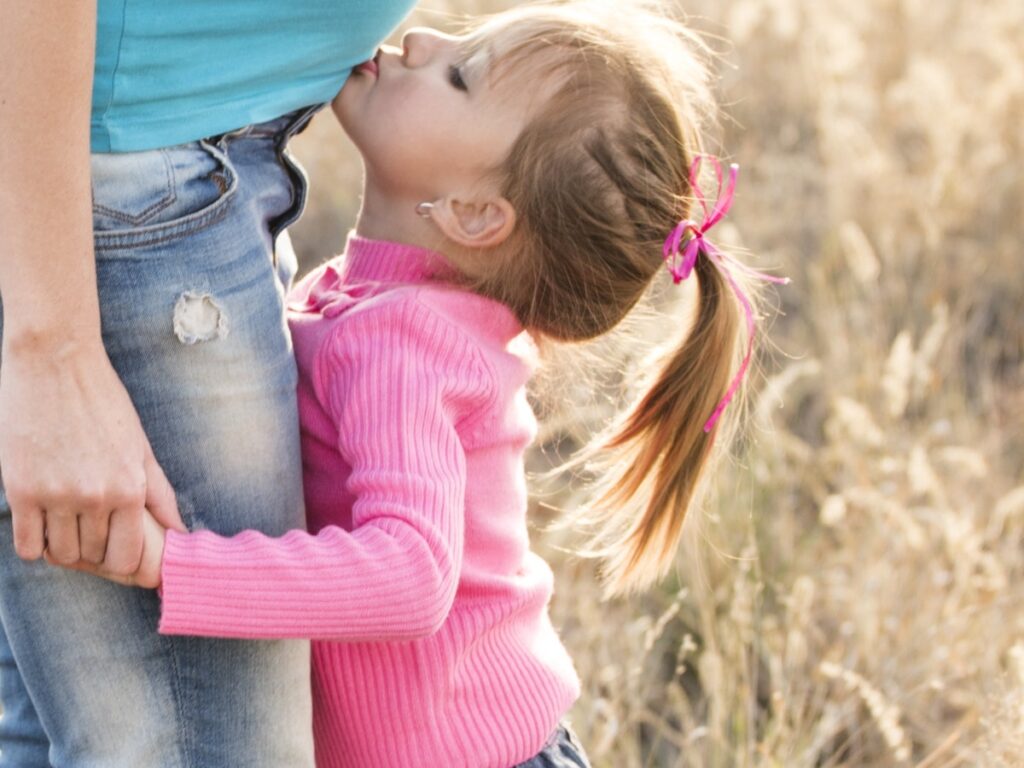
The location
The first thing to consider is where to go.
Can highly recommend forest campsites when camping with young ones. The trees have a super calming effect on children, with the benefit of not being woken up at 5am as the sun rises as the trees offer shelter from the sun (and potential rain).
Even if your toddler or baby is normally an early riser, you might find they adjust to sleep later when they’ve had a day and night outdoors. You also won’t have to worry about sunscreen in the shade of the trees.
If it is your first time camping with a baby then why not opt for a campsite that’s a bit closer to home. For those who are camping for the first time ever, why not have a look at an overview of everything needed for a Guide to camping with kids to get a low down of the basics. Camping close to home means you can get the holiday off to a good start by avoiding a long and exhausting car ride with unhappy kids, as well giving yourself the opportunity to head back to the comfort of home if needs be.
If you are travelling further than normal, it might be worth investing in some travel sickness wristbands. Sea-Bands has a plastic stud that applies pressure on the Nei Kuan acupressure point on the wrist. They are around £10 per pack of 2.
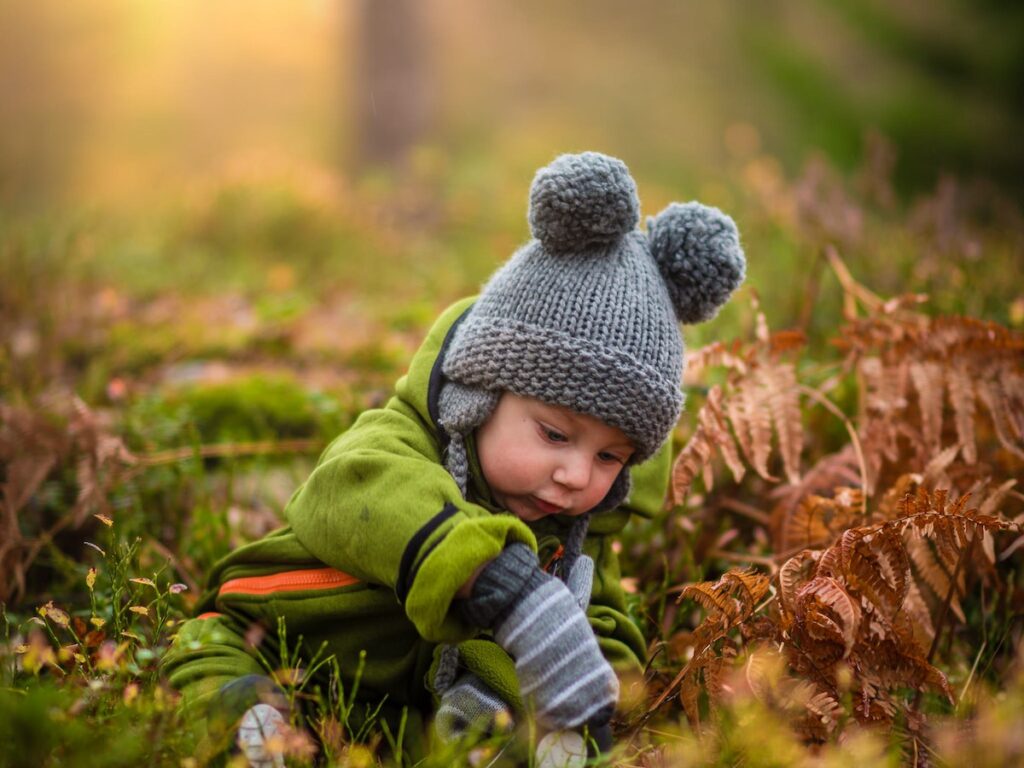
You also want to consider the surroundings with a baby in mind. This is especially important if you’re camping with toddlers who love to crawl off and explore! Maybe try to avoid campsites right by any rivers or cliff faces so as to prevent any unnecessary stress.
Also look out for campsites with lots of grassy paths and sections rather than gravel or stones, as these will be more comfortable for a crawling baby.
Also, would highly recommend a campsite that is family focused and doesn’t allow any cars on the camp grounds.
Is it time for a tent upgrade?
As your family grows, so should your tent!
Why not have a camping practice in the garden, pitching the tent and seeing whether all the kit and people can fit inside. I would recommend going for a larger tent, so you can fit in the beds, all the baby’s kit, and still have enough space to be comfortable. We have a buying a new tent guide to inspire.
With naps and getting your baby to sleep at night, you’ll probably spend more time than usual in the tent, so you want to ensure that it feels cosy and roomy.
Or another option could be to go for a pre-pitched tent or glamping holiday. This removes the stress of having to put a tent up and down with babes in arms.
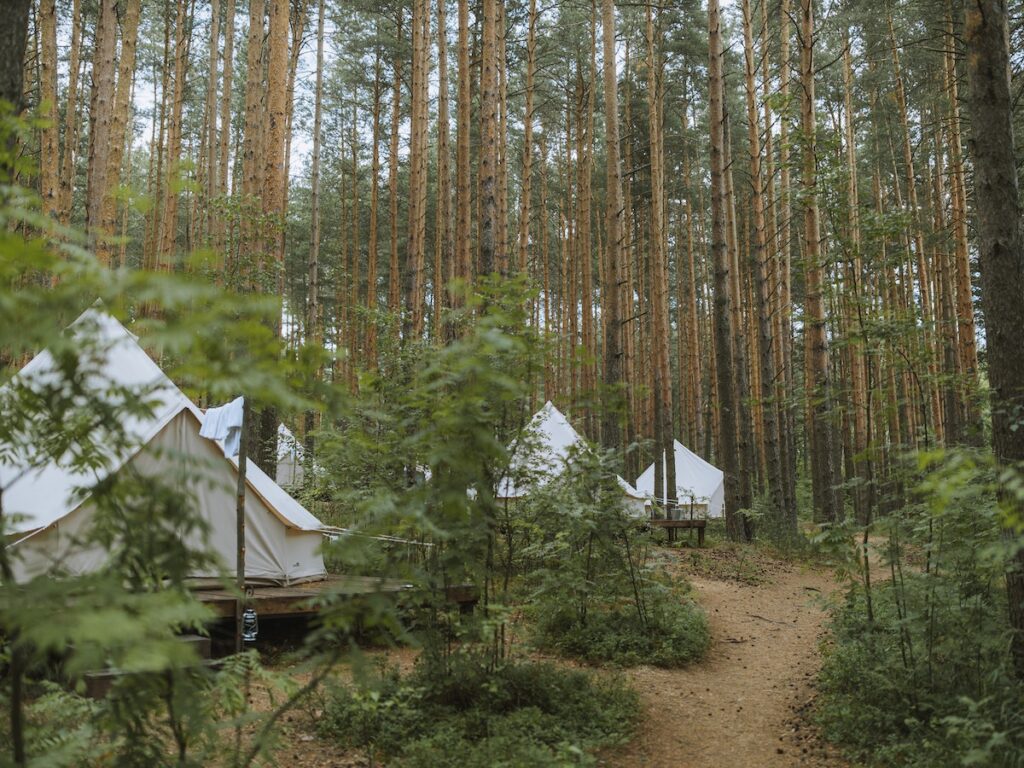
Kit that you’ll need
Camping with a baby or toddler does mean you need to bring a bit of kit, but it’ll all make your life so much easier. Biodegradable wet wipes and nappies are obviously a must. Be sure to bring a changing mat from home, but for a much easier changing time, why not invest in a 3-in-1 bassinet, nappy carrier and changing station.
These can come as backpacks that, in less than two minutes, can be transformed into a carry cot. They also often have loads of waterproof pockets that can be used to carry nappies (bring loads), snacks and a change of clothes.
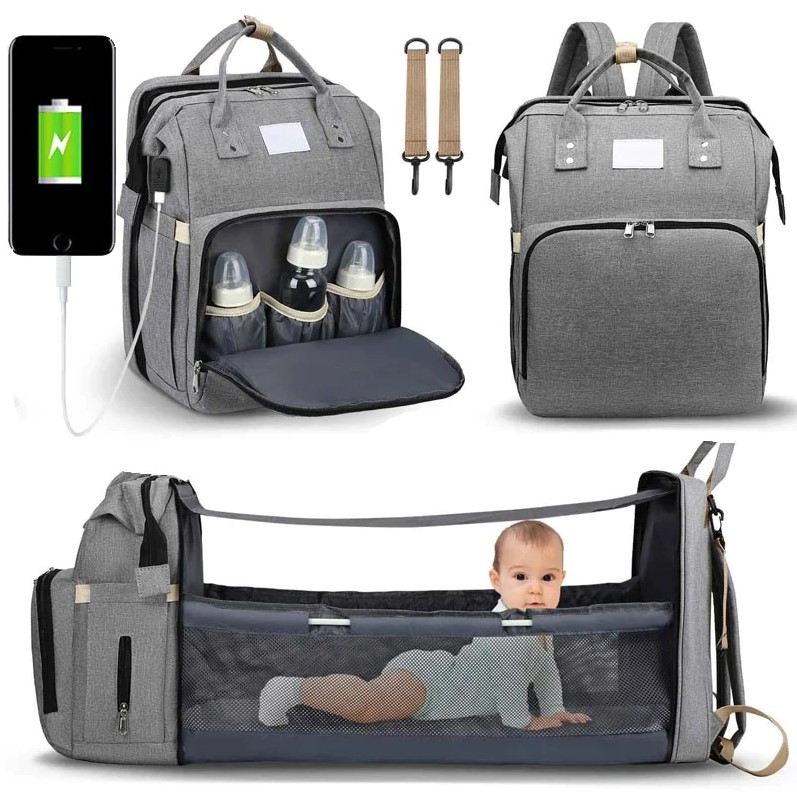
Walks with your baby
Don’t be afraid of camping with a baby that is under a year old. There are actually a few advantages of camping with a young baby.
With a baby carrier that’s comfortable for both you and your baby, they can sit on your back and nap while you go on walks and explore the countryside. Before you leave don’t forget to check the weather forecast, if it’s not pouring then be sure to dress your baby in waterproofs and maybe even bring an umbrella.
For some more tips on camping in the rain check out How to keep dry when camping.
Toddlers can also sit in a child shoulder carrier, and love watching the world from on high. They could always start off walking with you, and then climb into the carrier when they get tired. The key to successful walks is bringing lots of snacks- whenever moral starts to drop, a snack is sure to make them forget for a brief moment.
Depending on your location, and space in the car, you could also bring a buggy.
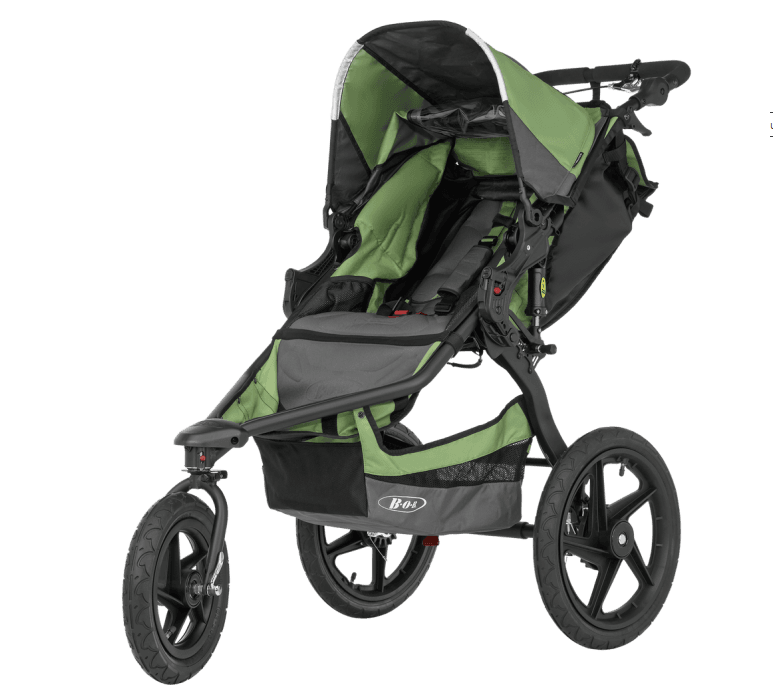
Meal-time
If you’re bottle-feeding you will need to put some thought into how to sterilise your bottles. You can now buy biodegradable single use sterilised bottles – so it may be worth buying a supply of these for your trip.
Breastfeeding when camping is a bit more straightforward.
If you are camping with a toddler, I’d recommend bringing food pouches or ready meals made for kids, for when you’re too tired to cook.
Also why not bring a baby camping chair so that they can sit around the fire with you. If you’re camping at a campsite with a picnic table, then a portable highchair that clips onto the table is also a great idea.
We love this one from Etsy, but there are lots of designs out there.
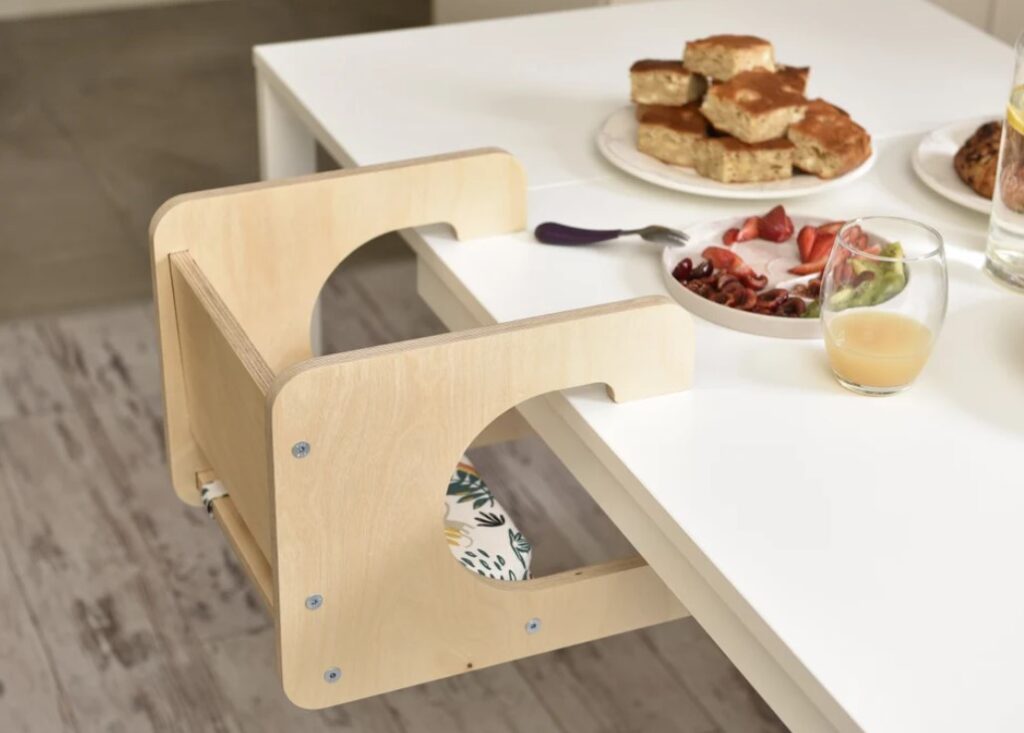
Don’t forget to also look after mum!
Feeding can be really exhausting, so make sure mum is comfortable by packing a comfy camping chair (I’d recommend a moon chair, as well as a few pillows from home).
Why not also pack a light hammock, which is great for feeding or daytime naps outside of the hot tent.
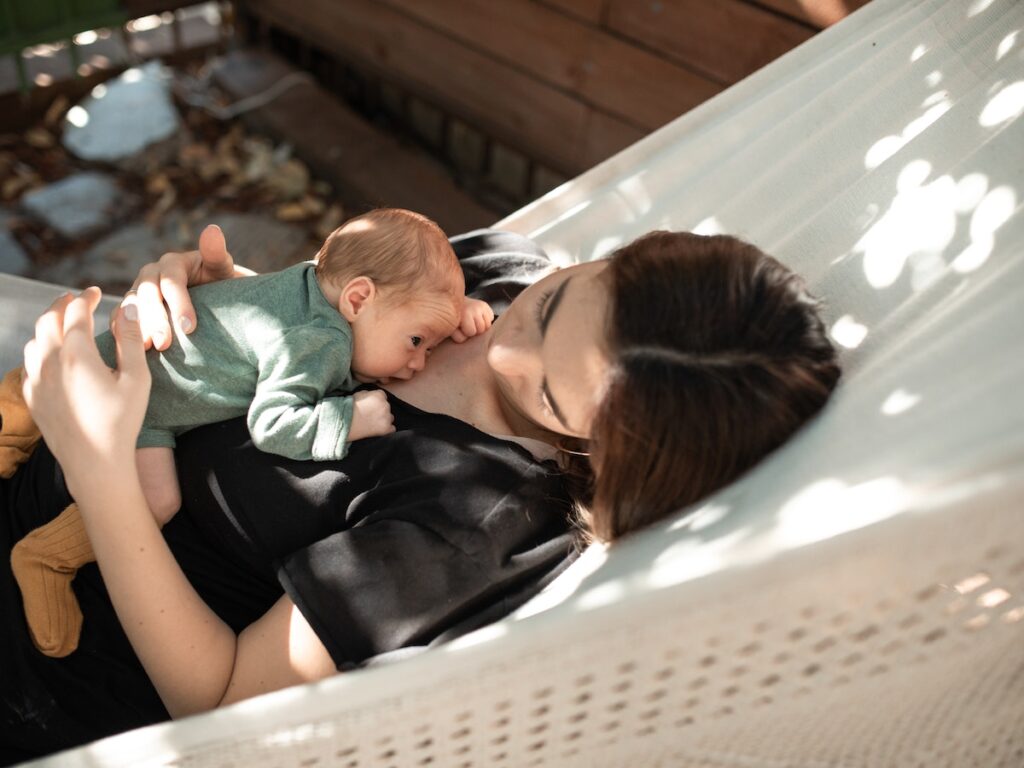
Night time with your baby
Be sure to find a great portable travel cot to help both you and your baby get a good night’s sleep. Just like at home, they need a comfortable mattress with good support, also make sure the cot is the right size.
No parent should feel guilty about a crying baby, but if your baby tends to wake at night you could always pick a more isolated camping spot so you don’t feel bad about disturbing your neighbours.
You could also chat to your neighbours, just to let them know that you have a young baby with you. But if you choose a family focused campsite, then you know every neighbour either has small children or is understanding that babies cry sometimes. That makes camping a lot less stressful.
If you’re struggling to get your baby off to sleep because it’s still light, then why not drape a blanket over the tent to make it darker. Make sure to bring breathable clothes for your baby, as the weather can change rapidly on a camping trip, and they can overheat or get too cold especially quickly.
At night, bring gloves, a hat, and lots of layers that you can take on or off.
Also bring your baby’s favourite toys, blanket, or that random object they’re really attached to which can help comfort them in the new environment.
Toddlers often want to pack every teddy, so it might be worth saying 1 day teddy and 1 night teddy as lots of teddies can get lost or left behind.
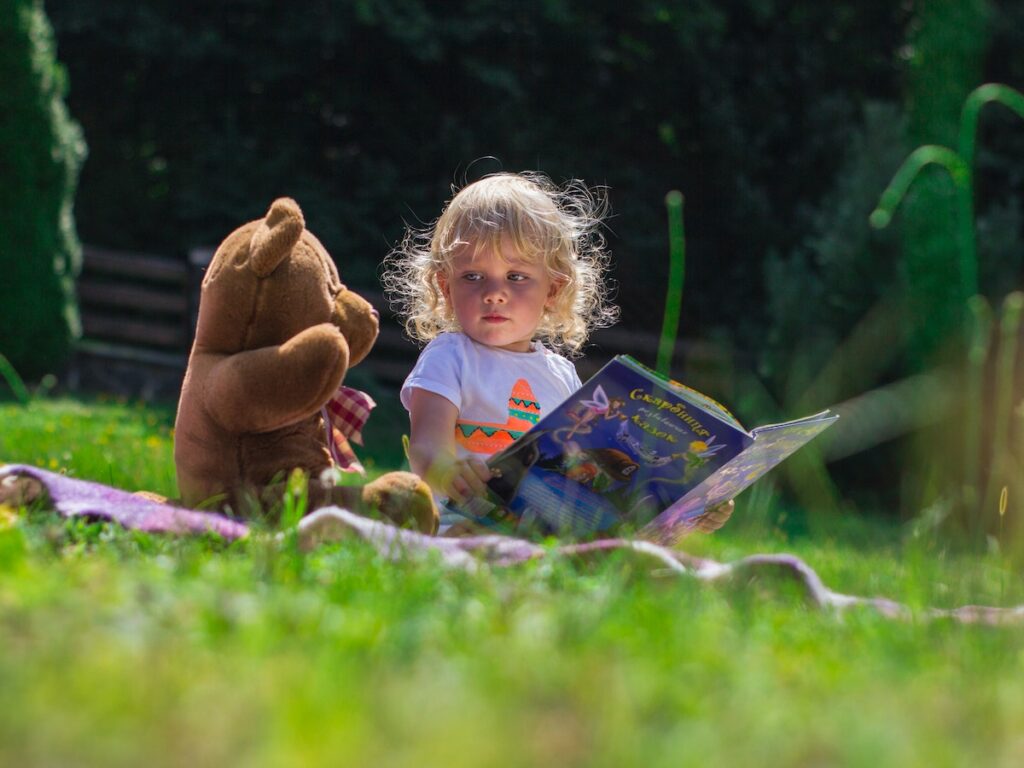
Camping with a baby or toddler can be hard work; so don’t be too hard on yourself if things don’t go completely to plan. Every baby and every family is different, so it may take a few tries to work out what works for you and your family.
Camping with a baby or toddler is an adjustment, and requires some more kit and forethought, but letting your baby experience the joys of camping, the fresh air and nature, is so rewarding.
Give it a try – you won’t regret it, I promise!
For more tips check out our guide on What To Pack – When Camping With Kids.
Here’s me signing out and thank you so much for reading.
Lily Crooke / Environmental and Recreational author
